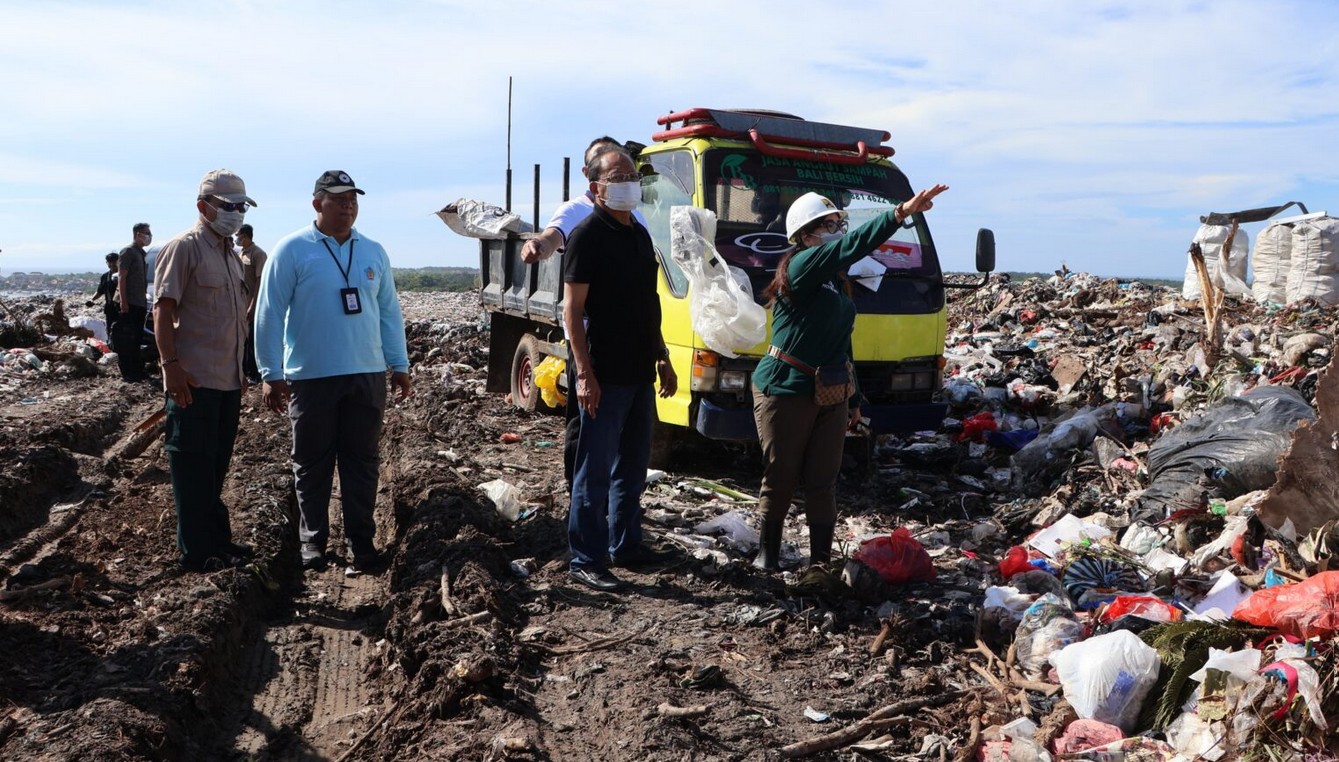Bali Provincial Government has officially prohibited the disposal of organic waste at the Suwung Final Waste Disposal Site as well as at Integrated Temporary Waste Disposal Sites.
This policy, which took effect on August 1, 2025, follows the closure of the Suwung landfill. As a result, residents are now required to manage their organic waste independently.
According to Antara, “Yes, (residents) should process it themselves. Take care of it on your own,” stated Bali Governor Wayan Koster after attending the inauguration of the Immigration Patrol Task Force at Benoa Port, Tuesday (August 5, 2025).
Planned Well in Advanced
Koster explained that households are expected to process both organic and inorganic waste on their own.
Waste should only be disposed at Reduce, Reuse, Recycle Waste Processing Sites or after it has been processed and reduced to residue.
He emphasized the importance of sorting waste at the source. However, if residents are unable to process their waste and end up dumping it on the streets, it becomes the responsibility of local municipal and regency governments.
“That must be handled by the mayors and regents. It’s their responsibility,” he said.
Koster also urged regional governments to build more Integrated Temporary Waste Disposal Sites or Reduce, Reuse, Recycle Waste Processing Sites facilities if the existing ones are insufficient, to prevent long queues at waste disposal sites.
“There’s no other way. Otherwise, waste at Suwung will just keep piling up,” he warned.
In response to criticism that the policy was implemented without warning, Head of the Bali Forestry and Environment Agency, I Made Rentin, denied the claim and emphasized that the ban on organic waste at Suwung had been planned well in advance.
According to Detikbali, “It’s inaccurate and unfounded to say it was sudden. The process of closing Suwung landfill starting with stopping organic waste deliveries was prepared long ago with several regulations issued,” Rentin clarified.
Limitations on Types of Waste
On Thursday (July 31), the provincial government announced that starting the following day, Wednesday (August 1), garbage trucks from Denpasar and Badung would no longer be allowed to dump organic waste at Suwung. Only inorganic waste and residuals are now accepted.
The new regulation led to limitations on the types of waste that can be temporarily stored in village or subdistrict collection sites, sparking protests by cart operators, who left piles of garbage in front of the Bali Governor’s Office on Monday (August 4).
Rentin argued that the policy is not new and has been grounded in legal frameworks established years ago, starting with Regulation No. 47 of 2019 on Source-Based Waste Management.
“That was issued six years ago, along with follow-up regulations such as Governor’s Circular No. 9 of 2025 on the Bali Clean Waste Movement,” he added.
The Denpasar city government has also issued local regulations, including Mayor Regulation No. 15 of 2023 on Culturally-Based Waste Management and Mayor Regulation No. 7 of 2024 on the Master Plan for the Waste Management System.
Rentin further noted that since June 2025, a joint task force comprising Bali Forestry and Environment Agency, the Source-Based Waste Management Ambassadors, and task forces for reducing single-use plastic and promoting source-based waste handling, has been actively conducting public outreach.
“Every Tuesday and Friday, we’ve held outreach programs in Denpasar, focusing on four districts, involving village heads, traditional leaders, women’s groups, and Pasikian Krama Istri. After Denpasar, we continued to Badung and several districts in Gianyar,” he said.
Concluding his statement, Rentin called on the public to actively participate in addressing the waste crisis, which he said has reached an emergency level.
“Change the habit from ‘collect, transport, dump’ to managing waste at its source,” he urged.
Sources: AntaraNews, DetikBali
Feat Image: via Bali Provincial Govt

